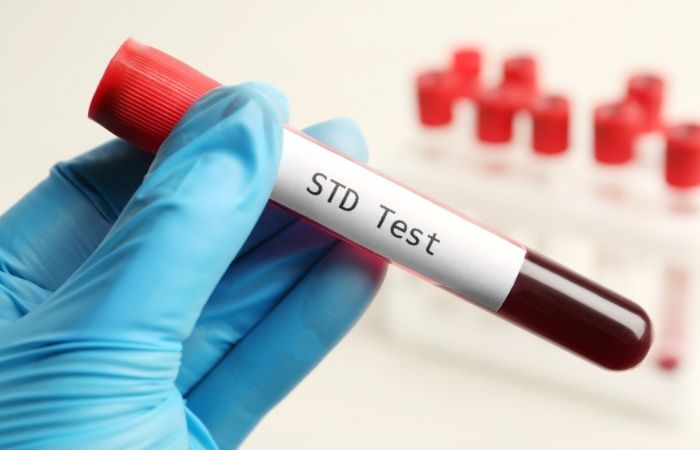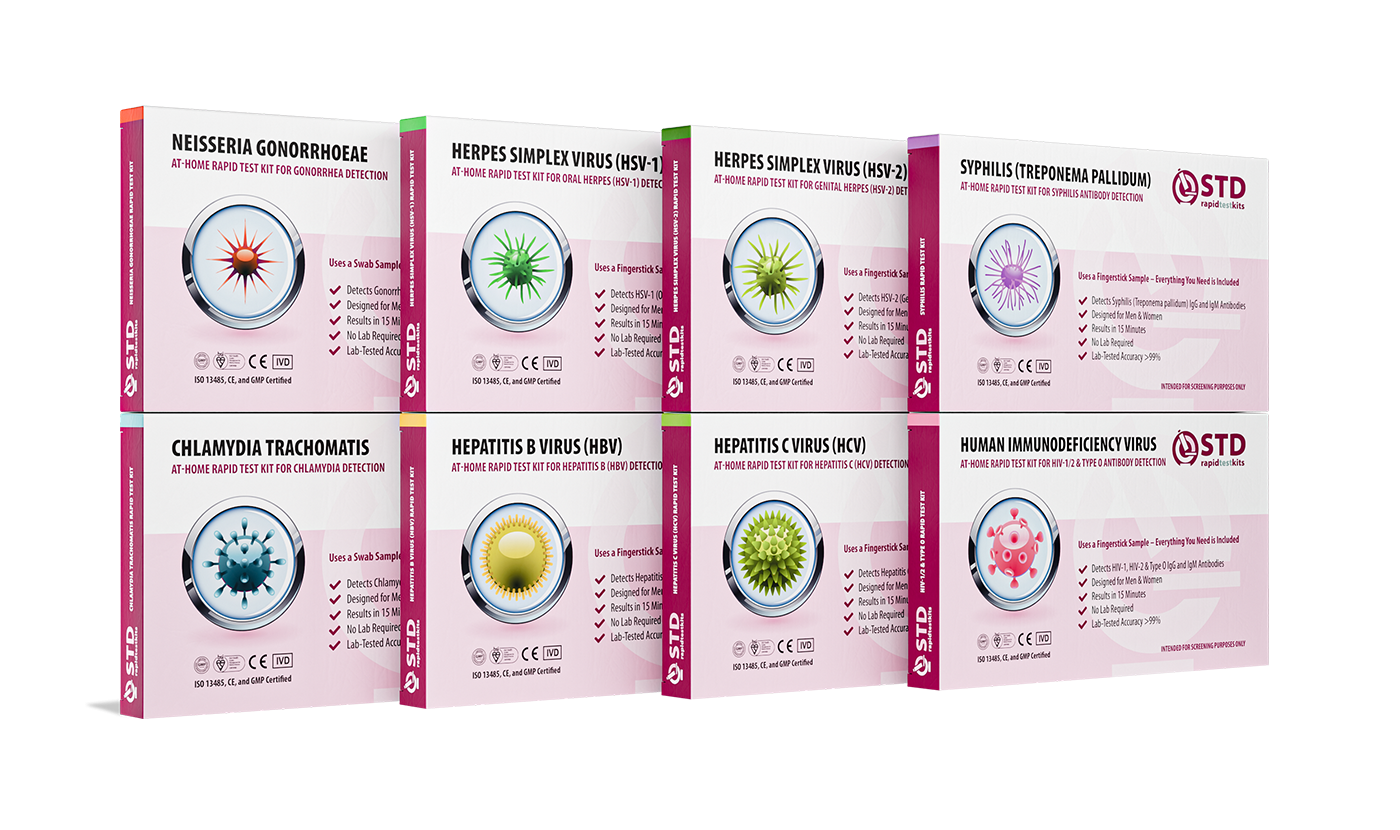Quick Answer: Sex workers of color face higher STD risks due to racialized stigma, criminalization, and barriers to care. Testing and treatment are often delayed, denied, or dangerous to access, making tailored, community-led solutions essential for true sexual health justice.
Why the Double Bind Exists
At the heart of the STD crisis for sex workers of color is intersectionality, a framework that shows how overlapping systems of oppression (race, class, gender, criminal status) intensify health risks and reduce access to care.
When you’re both racially profiled and sex work stigmatized, here’s what happens:
- You're less likely to have health insurance or a regular provider
- You're more likely to be dismissed, misdiagnosed, or judged during visits
- Carrying condoms can be used as evidence of sex work in court
- You may avoid clinics altogether due to fear of criminal exposure
All of this makes routine STD testing, something everyone deserves, a political and personal risk for many workers of color.

People are also reading: Why Sex Educators Say You Should Be Wrapping Your Toys
The STD Numbers Tell the Truth
National data consistently show that Black, Latinx, and Indigenous sex workers experience higher rates of chlamydia, gonorrhea, syphilis, and HIV compared to white counterparts. But the problem isn’t behavior, it’s access, stigma, and systemic neglect.
For example, a study in Sexually Transmitted Diseases journal found that Black trans sex workers were 3–4 times more likely to test positive for an STD than white cis female workers, even when controlling for number of partners and condom use.
This isn’t about who’s “more responsible”, it’s about who the system consistently fails.
Case Study: “I Was Turned Away for Being a Black Sex Worker”
Marsha, 27, has been doing full-service sex work in Atlanta for five years. She's careful. She gets tested when she can. But one time, she came in with a suspected gonorrhea infection, and left without being seen.
“The nurse gave me this look, like I was dirty. She asked if I was trafficked, called in a social worker, and told me I’d have to wait ‘a few hours’ because they were backed up. I was in pain. I left.”
Marsha ended up self-treating with leftover antibiotics from a friend. The symptoms came back two weeks later, worse. “I don’t know if it was the same infection or something new. I just didn’t want to go back.”
This is what the STD double bind looks like in real life: shame, denial, and delayed care for people doing their best to survive.
Testing Isn’t Enough, We Need Safety and Support
Most public health campaigns talk about “knowing your status” like it’s simple. But for sex workers of color, testing can mean:
- Being outed to authorities or family
- Losing custody of children
- Getting reported to social services or ICE
So they avoid clinics. Or they wait too long. Or they rely on underground methods, sometimes accurate, sometimes dangerous. Real harm reduction means offering care without judgment, surveillance, or legal risk.
And it also means recognizing the emotional toll: when the world treats your body as a threat, it becomes hard to trust anyone with it, including doctors.
Check Your STD Status in Minutes
Test at Home with Remedium10-in-1 STD Test Kit

 For Women
For Women Results in Minutes
Results in Minutes No Lab Needed
No Lab Needed Private & Discreet
Private & DiscreetOrder Now $189.00 $490.00
For all 10 tests
What Community-Based Clinics Get Right
Not all clinics are hostile. Across the U.S., a growing number of community-led and sex worker-centered health programs are flipping the script by:
- Offering anonymous, walk-in STD testing, no ID required
- Staffing clinics with people who have sex work experience
- Training providers in trauma-informed, anti-racist care
- Removing law enforcement presence from clinical spaces
These models work. Not only do they increase testing and treatment rates, they build trust. And that trust saves lives.
Why Mainstream STD Testing Fails Sex Workers of Color
Even well-meaning clinics often fall short. They might offer “free STD testing,” but still:
- Require a legal name or government ID
- Push mandatory counseling with invasive questions
- Call in law enforcement or social workers if trafficking is suspected
These practices may sound “protective,” but they undermine bodily autonomy and push people away. For a Black trans sex worker without stable housing, giving a name could be dangerous. Being honest about work could lead to arrest or forced rehab.
Without trust, there is no access.
Data Without Dignity: The Harm of Surveillance-Based Outreach
Public health departments often collect STD data from communities they don’t serve. They publish reports about “high-risk groups” but rarely invest in actual care infrastructure.
And too often, they treat people like numbers, not humans. Surveillance-based outreach might gather infection rates, but without dignity, respect, or collaboration, it only reinforces stigma.
Sex workers of color need care that centers them, not case studies about them. They need outreach led by peers, not police. And they need funding that supports grassroots health, not just data collection.

People are also reading: STD Starter Pack: What You Might Already Have (And Not Know It)
Here’s What Real Support Looks Like
If you’re a sex worker of color, or love someone who is, here’s what actually helps:
- Peer-led education: Resources made by and for sex workers
- Mobile testing vans: No questions, no judgment, just care
- Access to free condoms, lube, and meds: Especially for those criminalized for carrying them
- Partnerships with trusted orgs: That offer mental health, housing, and legal support
And most importantly? Listening. Sex workers of color know what they need. Our job is to make space, fund it, and get out of the way.
If you want testing that puts power back in your hands, this combo at-home STD kit lets you screen on your terms, privately, quickly, and safely.
No One Should Have to Choose Between Safety and Health
The truth is simple but devastating: too many sex workers of color avoid care because it’s not safe to access it. That’s not a personal failure, it’s a public health failure.
But there’s hope in community. In peer networks, harm reduction, mobile clinics, and at-home test kits that put power where it belongs, in your hands. We can’t dismantle racism and whorephobia overnight. But we can start by making STD care accessible, respectful, and rooted in dignity.
Explore STD Rapid Test Kits for confidential, at-home screening options that don’t judge or surveil. Because sexual health should never come with a risk to your safety.
Check Your STD Status in Minutes
Test at Home with Remedium8-in-1 STD Test Kit

 For Men & Women
For Men & Women Results in Minutes
Results in Minutes No Lab Needed
No Lab Needed Private & Discreet
Private & DiscreetOrder Now $149.00 $392.00
For all 8 tests
Criminalized Bodies, Criminalized Health
For sex workers of color, sexual health isn’t just a matter of access; it’s a matter of criminalization. Many face legal systems that treat their bodies as evidence, not as people in need of care. In more than 30 U.S. states, carrying condoms has been used as proof of sex work in criminal court.
Let that sink in: Possessing the very tools that prevent STDs and HIV can lead to arrest.
For Black, Latinx, Indigenous, and Asian sex workers, especially trans and undocumented workers, this creates an impossible choice: protect your health or protect yourself from the law. The result is fewer condoms, less testing, and higher infection rates driven not by behavior, but by punishment.
Decriminalization isn’t just policy, it’s public health. Until sex work is treated as work and health tools are seen as human rights, these intersecting injustices will keep pushing STD rates higher in communities that are already over-policed and underserved.
“He Said He Was Clean”: When Clients Are the Hidden Risk
Another rarely discussed reality? Many sex workers of color aren’t the ones bringing STDs into the room, their clients are. And too often, clients refuse testing, lie about symptoms, or offer more money to skip condoms.
Let’s be real: economic survival shouldn’t hinge on navigating someone else’s sexual recklessness. But for many Black and brown sex workers, it does.
Studies have found that clients, especially cishet men, are significantly less likely to use protection during paid encounters, despite being more likely to have multiple partners, undiagnosed STDs, or untreated infections. And when the power dynamic skews along racial or financial lines, saying “no” can come with real danger.
This makes harm reduction a necessity, not a luxury. Sex workers deserve tools, resources, and community support to protect themselves, whether or not a client chooses to be honest.
Harm Reduction Isn’t Optional, It’s Survival
While some healthcare systems debate whether sex workers “deserve” support, communities on the ground have built their own survival strategies. Harm reduction isn’t a buzzword, it’s how many sex workers of color stay alive in the face of criminalization, racism, and stigma.
Key harm reduction strategies include:
- Carrying extra condoms and lube (and storing them safely)
- Using at-home STD test kits between clinical visits for regular screening
- Negotiating services and boundaries clearly with clients before contact
- Using PrEP (pre-exposure prophylaxis) to prevent HIV transmission
- Connecting with peer-led sex worker orgs for legal and health advocacy
If you are a sex worker of color reading this: You’re not alone. You are not a vector. Your body is not disposable. You deserve sexual health care that doesn’t judge your work, your skin, your gender, or your survival choices.

People are also reading: Why Anal Sex Raises Your Risk for STDs (Even with Condoms)
FAQs
1. Are sex workers of color more likely to get STDs?
Not because of behavior, but because of systemic racism, criminalization, and healthcare discrimination that limit access to prevention and treatment.
2. Can I get tested anonymously?
Yes. Some community clinics and at-home test kits allow you to screen without using your legal name or ID.
3. Is it safe to carry condoms?
In some cities, condoms can be used as “evidence of sex work.” Know your local laws and consider using peer-led orgs for supplies.
4. How can I find a clinic that won’t judge me?
Look for sex-worker affirming, trauma-informed, or LGBTQ+ health centers. Ask if they offer walk-in services and peer navigators.
5. What if I’m undocumented?
Many community health centers offer confidential services regardless of immigration status. At-home test kits are also an option.
6. How do I advocate for better care?
You shouldn’t have to, but you can ask for trauma-informed providers, refuse unnecessary questions, and bring a support person if needed.
7. What if I test positive?
You can usually access treatment without going through police or mandatory reporting. Clinics like Planned Parenthood can help discreetly.
8. Can I use leftover antibiotics from a friend?
It’s not recommended, wrong meds or dosage can make things worse. Get tested and treated properly if you can.
9. What’s the best at-home STD test for sex workers?
Look for combo panels that include HIV, chlamydia, gonorrhea, and syphilis. Some even ship discreetly with no ID required.
10. Where can I get support from others like me?
Check out organizations like Black Sex Worker Collective, SWOP USA, or DecrimNow for community-based resources.
Sources
1. Goldenberg et al. (2023) – Reduced Odds of HIV/STI Testing for Women of Color Sex Workers
2. Platt et al. (2018) – Criminalisation & Policing Increase STI Risk for Sex Workers
3. Sherman et al. (2021) – Structural & Environmental Influences on STI Risk in U.S. Female Sex Workers
4. Research Review (2025) – Intersection of Sex Work & Public Health: Causes, Effects & Solutions
5. HIV Law & Policy Toolkit – Criminalisation, Race & HIV Risk Among Sex Workers of Color
6. Faissner et al. (2024) – Barriers in Healthcare Access for Sex Workers: Race, Stigma & Mobility










